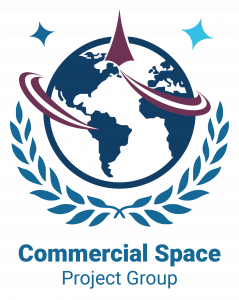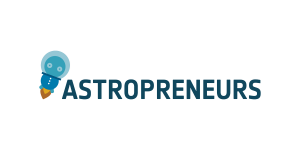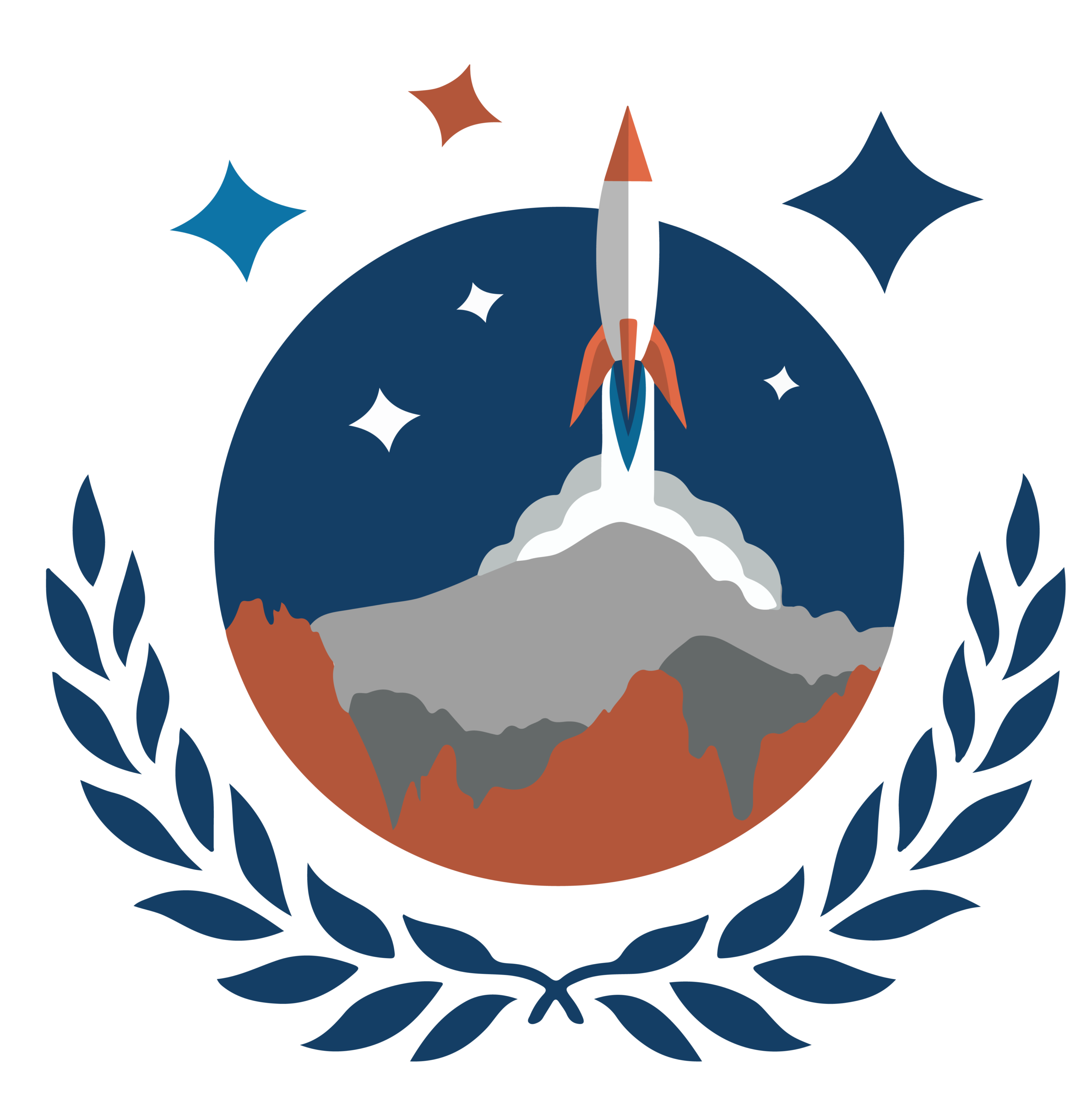Commercial Space Project Group

The main areas of interest within the Commercial Space Project group are showcased next. Further down, you will find some information regarding past projects and partnerships of CSPG.
Current Projects
CSPG Pre-Accelerator Program
The Commercial Space Project Group (CSPG) Pre-Accelerator Program is an 8-week bootcamp designed to bridge the critical gap between incubation and accelerator programs, helping early-stage space ventures enhance their business maturity. Tailored specifically for the space industry, this program is ideal for entrepreneurs with innovative ideas who are eager to enhance their business acumen and technical readiness. It is also ideal for teams working on space-related startups seeking to refine their concepts and prepare for accelerator programs. Additionally, the program welcomes students and young professionals interested in exploring the intersection of space engineering and entrepreneurship, providing them with the tools and knowledge to advance their careers in the space industry.
Program Highlights
- Focus on Space Entrepreneurship: The program integrates both technical and business aspects of space startups, enabling participants to gain a holistic understanding of the challenges and opportunities in the space industry.
- Practical, Hands-On Learning: Participants will acquire skills such as qualifying space components, navigating technology readiness levels (TRL), and understanding funding mechanisms in the space sector.
- Expert Guidance: Sessions are led by seasoned professionals from the space industry, including engineers, venture capitalists, and successful entrepreneurs, offering participants valuable mentorship and networking opportunities.
- Global Network: As part of the CSPG and SGAC, participants will connect with a global network of young professionals and experts passionate about space commercialization.
CSPG Podcast
The Commercial Space Project Group (CSPG) Podcast is a vibrant platform dedicated to exploring key trends, challenges, and opportunities within the commercial space industry. Through engaging interviews and thought-provoking discussions, the podcast connects space professionals, entrepreneurs, and enthusiasts from around the world, fostering collaboration and the exchange of knowledge.
Each episode dives into in-depth conversations with industry experts, including engineers, policymakers, investors, and startup founders. These discussions provide unique perspectives on the evolving space economy and highlight diverse topics such as emerging technologies, sustainable space practices, funding opportunities, and the role of AI in space innovation.
The CSPG Podcast is designed to engage a global audience of space enthusiasts, young professionals, and industry veterans. It offers entrepreneurs and innovators valuable insights and practical advice from industry leaders, while also providing students and professionals an opportunity to deepen their understanding of space business and technology.
CSPG Business Roundtables
The CSPG Business Roundtables are interactive forums designed to connect young professionals, entrepreneurs, and industry experts to discuss the challenges and opportunities within the commercial space sector. These sessions facilitate open dialogue, knowledge sharing, and networking among participants, fostering collaboration and innovation across various areas of the space industry.
Each roundtable focuses on a specific topic, such as funding strategies, market trends, regulatory challenges, or technological advancements. Participants engage in meaningful discussions to explore solutions, exchange ideas, and identify pathways for growth and success in the space economy.
The Business Roundtables are ideal for those looking to deepen their understanding of the commercial space landscape, connect with like-minded professionals, and gain insights from experienced leaders.
Research Groups (RGs)
Space Venture Capital RG
The Space Venture Capital Research Group is a dedicated initiative focused on analyzing the intersection of investment and innovation within the rapidly evolving space industry. The group follows an interdisciplinary approach to study the latest funding trends, investment strategies, and the unique challenges of space startups. Furthermore, the group aims to bridge the gap between venture capital and the space sector, empowering entrepreneurs and investors alike.
Through detailed research and collaborative discussions, the group examines critical topics such as the role of venture capital in advancing space technologies, the financial challenges faced by startups in the sector, and strategies for fostering sustainable growth. This work also highlights emerging opportunities in areas like satellite technology, in-space manufacturing, and exploration-driven business models.
Past focus of study of the group were Space Venture Capital in the 5 eyes Region and Space Venture Capital in Emerging Space Faring Nations.
Sustainable Lunar Economy RG
The Sustainable Lunar Economy RG is a forward-thinking initiative dedicated to exploring and advancing strategies for creating a sustainable and economically viable presence on the Moon. The RG focuses – with a commercial space acumen – on the technological building blocks, the necessary international collaboration, addressing the challenges and opportunities associated with lunar exploration and development.
The group focuses on key areas such as resource utilization, environmental preservation, and the application of digital tools like artificial intelligence and digital twins to support efficient lunar operations. These efforts are guided by the principles of sustainability, ensuring that lunar activities contribute positively to both scientific progress and economic growth without compromising the Moon’s delicate environment.
Past Projects and Partnerships
Digital Moon: Usage of Artificial Intelligence and Digital Twins for a Sustainable Lunar Economy (IAC 2024 – Milan)
This paper explores how Artificial Intelligence (AI) and Digital Twin technologies can support the development of a sustainable human presence and economy on the Moon. Focusing on scalable and modular lunar systems, it identifies key drivers for both institutional and commercial activities, addressing challenges like resource production, human settlement planning, and mineral utilization. The paper highlights current technological advancements and proposes a framework for implementing these tools, aiming to support long-term, sustainable lunar operations within the context of the ARTEMIS Program.
A Comparative Analysis of VC Investments in the Space Industry Across the “Five Eyes” and EU Region (IAC 2024 – Milan)
This paper investigates the trends in early-stage venture capital (VC) investments in the space industry, specifically focusing on Series A and pre-Series A funding rounds. The study compares three major geographical regions: the United States (US), the Five Eyes alliance excluding the US (FVEY Ex-US), which includes Canada, the United Kingdom, Australia, and New Zealand, and the European Union (EU). Over the past two decades, the space sector has experienced a shift towards a newspace economy, characterized by reduced government involvement and increased private investments, including those from VC firms. As the space industry is marked by long development cycles and high capital requirements, VC investments have become a crucial source of funding for startups in this sector. This paper uses commercially and publicly available data on space startup investments to analyze the performance of VC-backed space startups in terms of capital deployment and valuation growth. Since the number of VC-backed space startups reaching maturity for exit is low, these metrics provide a more accurate reflection of investment performance across different regions and time periods.
On the Commercial Space Development in Emerging Spacefaring Countries: Analysis and Comparison of Investments for Selected Cases (IAC 2024 – Milan)
This paper presents a comprehensive analysis of key emerging spacefaring nations, focusing on their regulatory frameworks, technological capabilities, and market potential. The study, conducted by the SGAC Commercial Space Project Group, explores successful and unsuccessful investments in these regions to identify patterns, challenges, and opportunities in financing commercial space ventures. The goal is to understand the dynamics of commercial space development in emerging nations, which are making increasing efforts to build autonomous space capabilities and access the global space market.
While some countries have already achieved a high level of space autonomy, emerging spacefaring nations are working to enhance their space activities and foster private sector growth. The strategies adopted by these countries vary, driven by geopolitical priorities, industrial ecosystems, and socio-economic objectives. Some nations have established national space agencies, launched satellites, and are competing for leadership in regional space access.
This research highlights the unique characteristics of space startups in emerging markets, including their innovative approaches, business models, and collaborative strategies. The paper compares these characteristics with established spacefaring nations to evaluate whether the investment landscape in emerging markets presents distinct challenges or advantages. The findings contribute valuable insights to the global space industry discourse, offering practical implications for investors, policymakers, and entrepreneurs involved in commercial space ventures.
A Framework for Designing a Data-Centric and Systematized Decision Making Unit (DMU) for Sustainable Space Investing (IAC 2023 – Baku)
This paper presents a design framework aimed at addressing the challenges commercial space investors face when evaluating space startups, particularly with regard to sustainability. As the space investment landscape increasingly emphasizes sustainability over profitability, investors struggle with inconsistent and non-standardized data, making investment decisions unsystematic and impractical. The framework proposed in this paper seeks to systematize the evaluation process and provide a more scalable, data-driven approach to decision-making.
The framework consists of three key components: (a) data acquisition, (b) sustainability strategy evaluation, and (c) the decision-making process. Data acquisition involves identifying and standardizing relevant data sources to ensure consistent evaluation across startups. The sustainability strategy evaluation focuses on developing metrics and indicators to assess the sustainability efforts of space startups, both in business and technology. Finally, the decision-making component outlines decision rules and guidelines to help investors make informed and sustainable investment choices.
Validated through a case study involving interviews with space investors and startups, the framework demonstrates its ability to systematize evaluations, objectively assess sustainability strategies, and guide startups toward more sustainable practices. The proposed framework not only supports investors in making better decisions but also fosters a more sustainable space ecosystem by identifying gaps and promoting sustainable strategies.
Lessons Learned from SGAC’s Pre-accelerator Program on Legal/IP Protection, Sustainability Testing, and Relevance of Accessible Network for Market Validation for Space Entrepreneurs (IAC 2022 – Paris)
This paper discusses the unique challenges faced by space entrepreneurs, such as navigating legal and intellectual property (IP) protections, designing effective sustainability frameworks, and gaining access to networks for lean market validation. These challenges are compounded by the distinct nature of the space sector, where resources are often limited, and opportunities for testing and validation can be scarce. To address these issues, the Space Generation Advisory Council (SGAC) created the Pre-Accelerator Program through its Commercial Space Project Group (CSPG). The program offers a tailored approach to space entrepreneurship, equipping new entrepreneurs with tools, resources, and a platform for sharing experiences. This paper presents the design framework of the Pre-Accelerator Program, exploring the rationale behind its curriculum and how it addresses these core challenges. Insights from this qualitative study provide valuable lessons for designing or enhancing similar programs aimed at supporting space-focused entrepreneurs.
Astropreneurs
- Article available here, co-authored by the CSPG team members Vinicius Aloia and Ananyo Bhattacharya.




